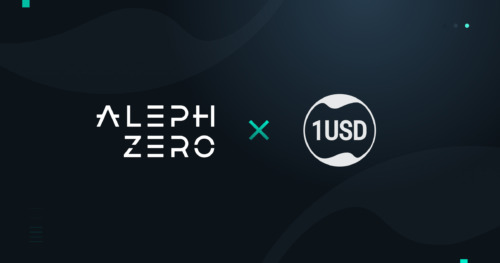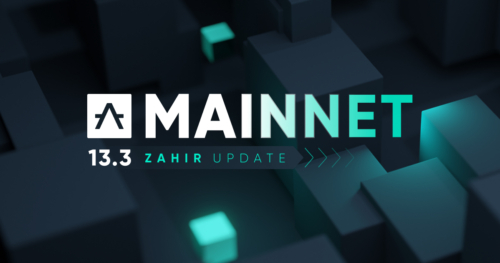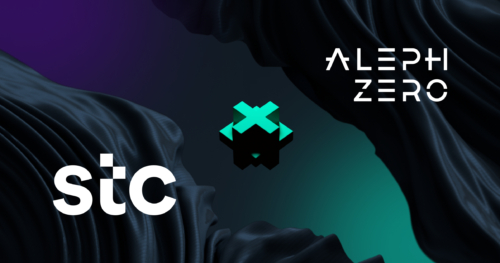Meet idOS: A Chain-Agnostic Identity Layer. Podcast Key Takeaways.
Jan 15, 2024
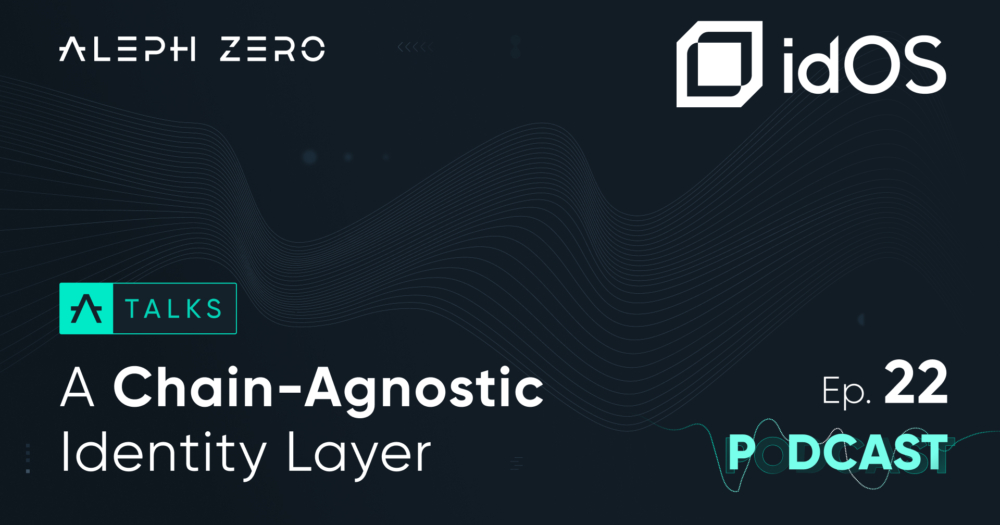
In the newest episode of the Aleph Zero Podcast we meet with Lluis Bardet, co-founder of idOS to discuss the future of decentralized identity layers and why they are so needed in the Web3 space.
Listen to the full episode on the platform of your choice
TL;DR
Too Long; Didn’t Read
- idOS is a chain-agnostic identity layer, meaning it is designed to operate between multiple chains to provide interoperability and to offer its user-centric data privacy solutions to as many users as possible.
- It currently caters to the Near, Gnosis, and Aleph Zero blockchain networks.
- Decentralized identity layers are solutions that allow web users to regain control over their data by making them sole owners of all of their sensitive information.
- This stands in contrast to current data management systems which rely on corporate tech giants and centralized databases that store user data.
- Companies such as Google and Facebook engage in opaque practices regarding what happens with our data and into whose hands it can fall into.
- Web3 aims to do-away with this by handing over control over this data to the average user, allowing them to choose who they share their data with.
- In order for Web3 security to take hold, two things must occur:
- Users must be better educated regarding security technology (seed phrases, wallets).
- Crypto builders must ideally build projects that allow users to take advantage of these solutions without even signalling that a product is built on a Web3 foundation.
- All information stored on your idOS profile is encrypted and can be shared with other entities. Access can be revoked at any time.
- What differentiates identity layers like idOS and Worldcoin is that the latter has not been transparent regarding how information is stored and who can get access to it.
- Worldcoin is oriented around creating a system that delivers proof of personhood.
- This is not satisfactory for creating novel KYC/AML systems.
- idOS is connectable to dApps by integrating the idOS SDK into the application allowing users to share credentials with these products and services.
- idOS is an open source project.
Building Novel Identity Management Systems in Web3
The decentralized blockchain landscape requires new tools for creating, managing and securing our online personas, a need that has been answered by idOS. This chain-agnostic identity layer is designed to give users full control over their personal information. As explained by Lluis Bardet, co-founder of this budding project, idOS stands in contrast to the established ways of managing online identities that the Web2 world has proposed for years. Instead of establishing centralized hubs for data management with each bank, social media platform, etc, owning a chunk of your online persona, idOS offers users the ability to manage all of that information and choose who is authorized to view it.
This revolutionary method for managing data is a key component of the Web3 ethos which aims to impart the average user with control over their data. As mentioned by Lluis Bardet, one of the most important aspects in the race for Web3 adoption is interoperability-this is guaranteed by idOS currently catering to Aleph Zero, Gnosis, and Near users.
The Technology Behind idOS
To ensure the mass acceptance of Web3 solutions two things are necessary. One is the greater education of web users regarding using privacy-enhancing technologies, but more importantly, as stressed by Lluis is the need for builders to create solutions that don’t require this knowledge at all. Managing wallets and seed phrases in a decentralized setting carries with it a whole new level of resposibility that should be avoided at all cost if possible. Ideally, Web3 products should take off from where Web2 products are now in terms of ease-of-use and intuitiveness.
What makes idOS possible is the combination of decentralized nodes, a access protocol (or chain-agnostic access control smart contract) and an identity verifier. The user submits for Web3 Verifiable Credentials through the identity verifier serving as the trust layer that confirms claims that users are making. The node providers store user data that the user encrypts with their own self-generated public/private keypair.
The decentralized network of nodes host user data and executes the idOS dStorage Network of Nodes that determines who is granted access and administration rights. Node operators provide an endpoint that allows all stakeholders to communicate with the idOS. Finally, dApps can request information from users and it is only the user that can issue permission for their encrypted information to be shared. These access rights can be revoked by the user at any time.
Building in the Open With idOS
Whar differentiates idOS from solutions like Worldcoin is that the former is not oriented around presenting proofs of personhood, and does not use biometric data as its primary verification method. The biometric verification used by Worldcoin is also not practical for KYC/AML solutions. Secondly, Worldcoin is somewhat opaque when divulging its methods for storing data and who has access to it. This is in stark contrast to idOS which builds in the open and has incorporated decentralization from the get-go.
Finally, idOS is an open source project that invites developers that are in the market for a decentralized identity layer to on-board their dApp providing their users with a safe and secure method for verifying credentials and sharing information.
Listen podcast
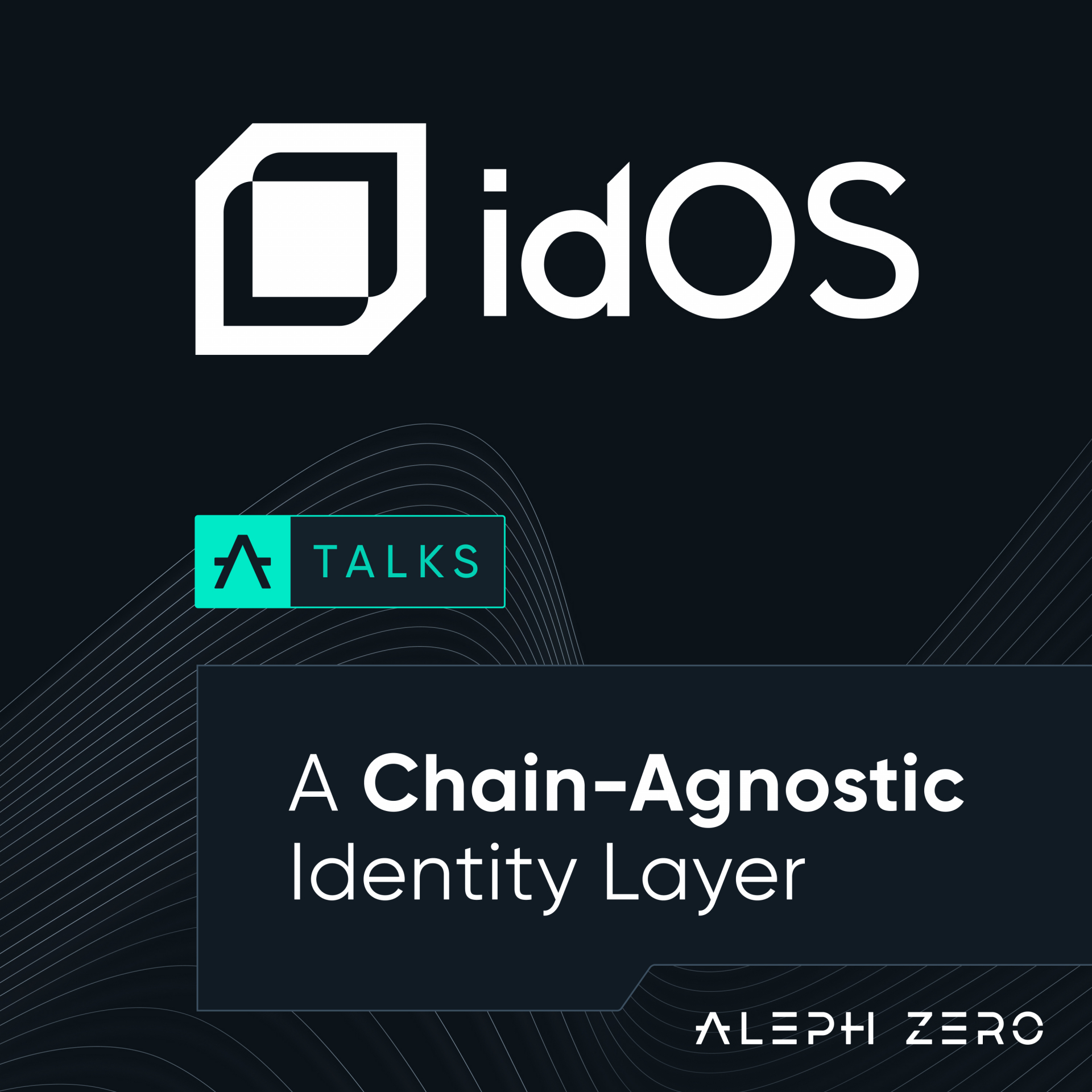
EP. 22 Meet idOS: Preserving Data Ownership on a Chain-Agnostic Identity Layer
In this episode of the Aleph Zero Podcast, we meet with Lluis Bardet, co-founder of idOS, a chain-agnostic identity layer developing on Aleph Zero. We'll talk about the need for such solutions in Web3 and how they benefit the end users by giving them complete control over their sensitive data and how it is shared.
